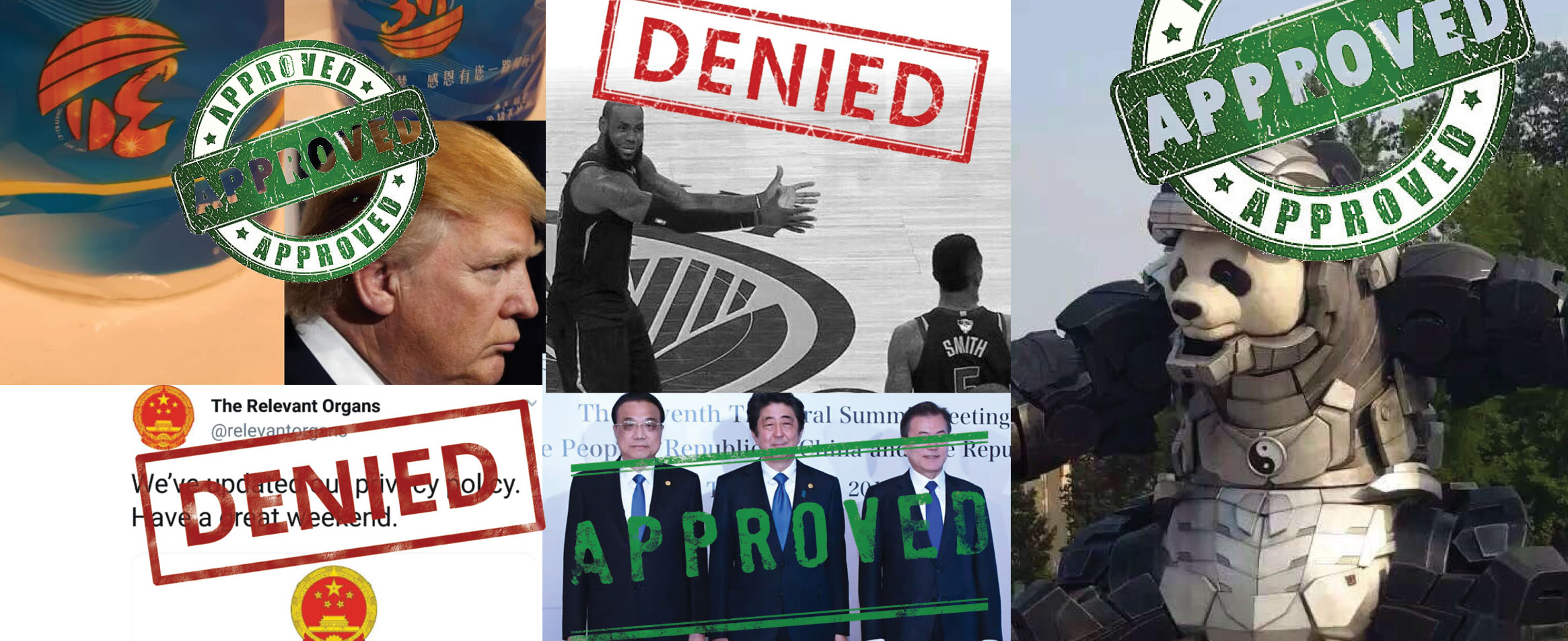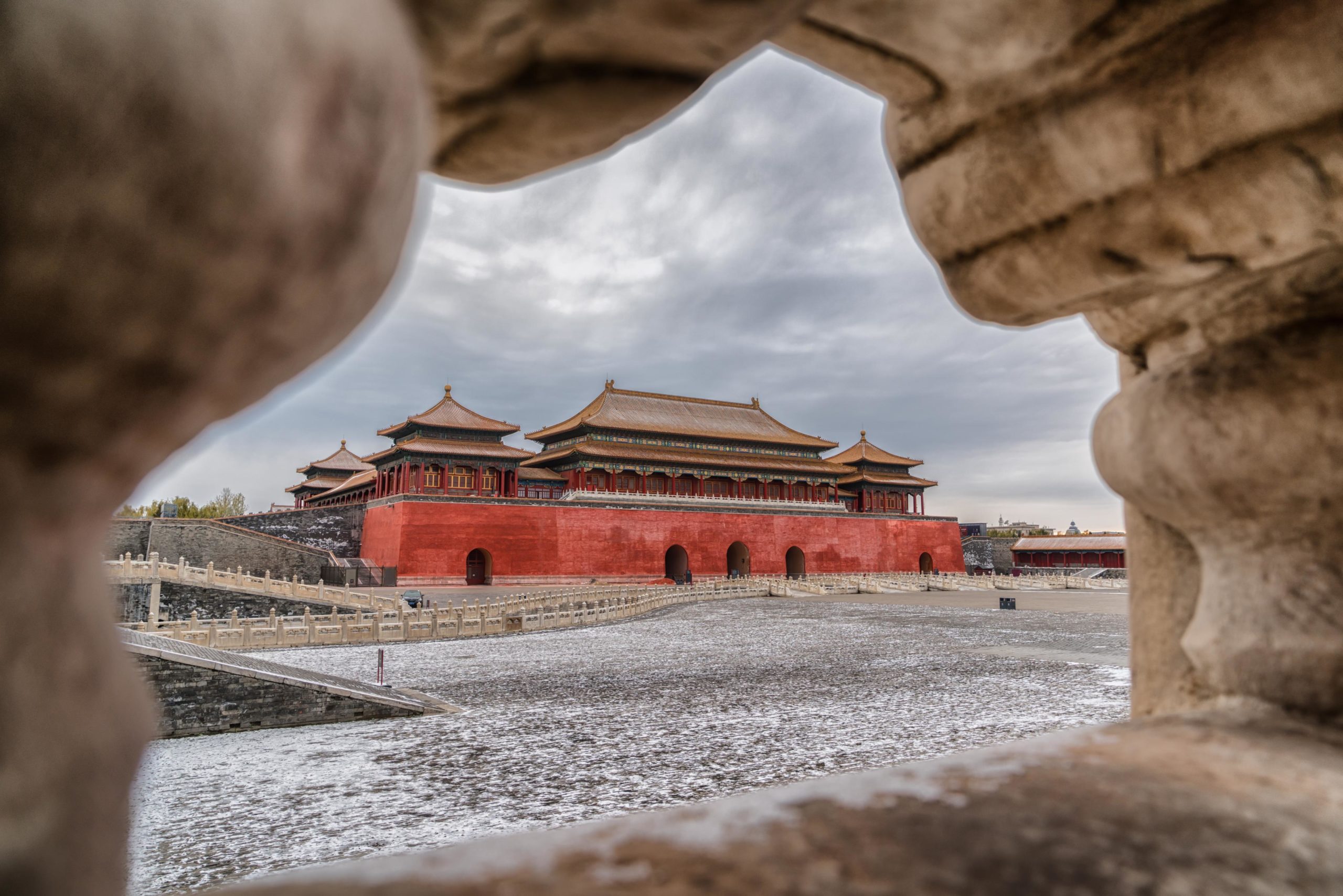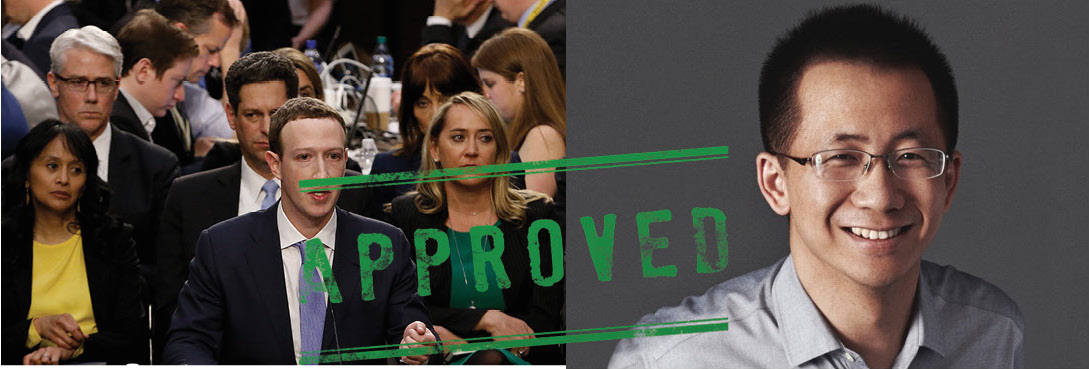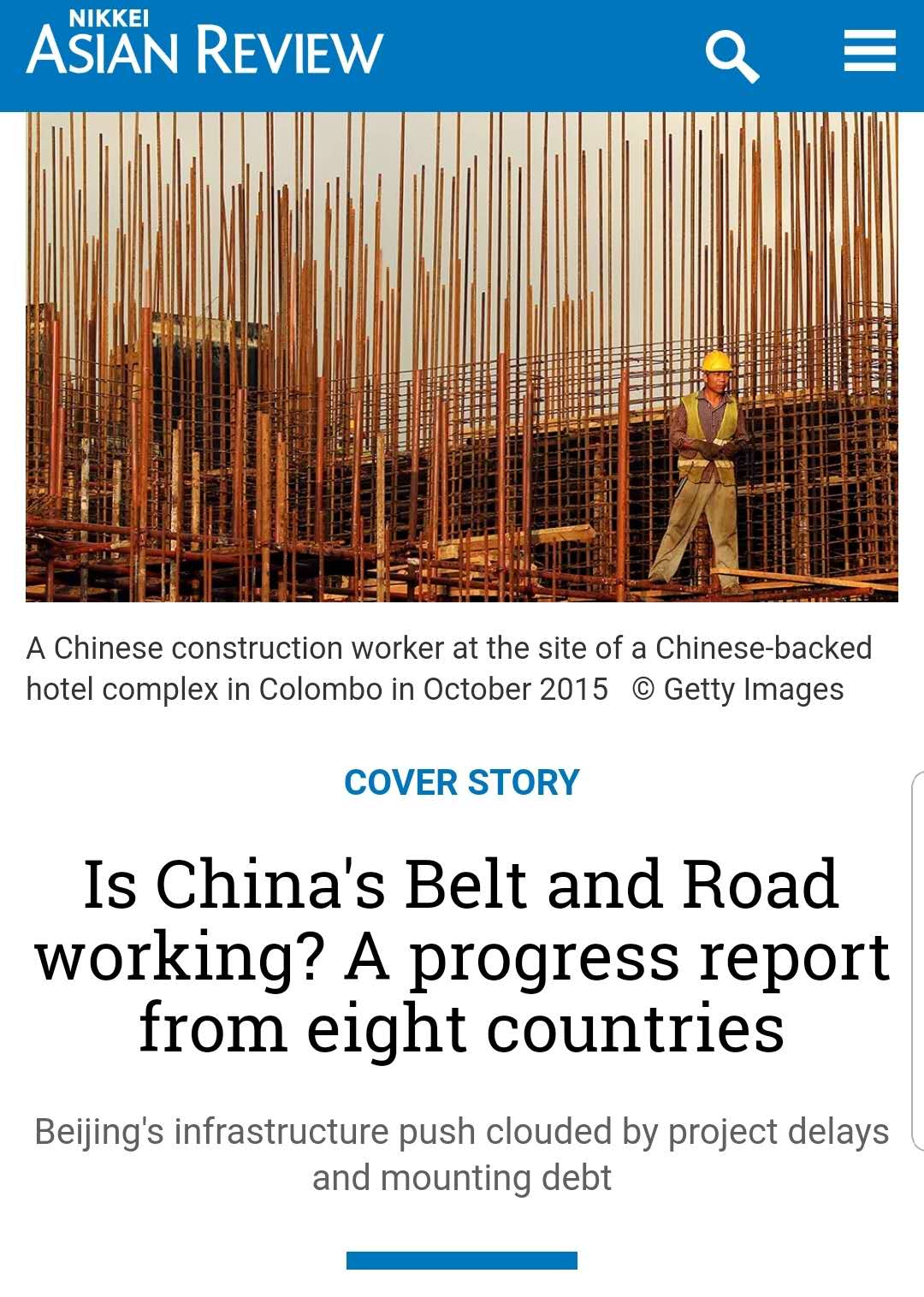Inside the Chinese censorship rabbit hole

On Chinese social media, Xi Jinping, ejaculation jokes, and the Relevant Organs parody Twitter account are among the subjects which are no-gos. But what occasionally does get past the censors might surprise you.

I am an American columnist for a fairly well-known Chinese tech, business, and culture news website. Most of its readers are in their 20s or 30s and live in China’s first-tier cities. Many work for tech companies. In addition to publishing a few longform articles every month, the platform has a Twitter-like feature on which its writers and editors post updates, comments, and jokes regarding the cultural, business, and political landscapes of China and the world. In other words, a lot like Twitter, but specific to the people on this particular platform.
While I can speak and write passable Chinese, for many of my posts, I will first write them in English and send to the editors for review. If they think it is OK to post, they will often translate it into Chinese. Because this is China, one-fifth of them get rejected, usually on the basis of political sensitivity. But after doing this for a while, I’ve found it quite interesting to see what posts get approved, what get rejected, and what gets a strong reaction from the platform’s readers — and why.
Below are a series of posts from the past few months, along with what gets accepted and rejected — and what that seems to say about the “rules” of the Chinese internet in 2018. It should be noted that most of what I post is not particularly sensitive, but the ones that I’m sharing here are those that get a little closer to the “line.” As per the request of my company’s editorial team, the name of the site will remain anonymous.
January 23, 2018
What I wrote:
这卷厕纸的logo倒过来看,与特朗普的头型简直……
When you turn this toilet paper logo upside down, it bears a striking resemblance to Trump…

Approved!
I’ll spare you the details of how I came to see this toilet paper-Trump resemblance, but this got approved easily — along with most Trump jokes. Like much of the world, Chinese netizens seem fascinated with the American president. Aside from the same reasons that the rest of us are captivated by the actions of the persimmon-in-chief, Kaiser Kuo wrote a piece a couple of years back on this topic that is worth another read.

April 10, 2018
What I wrote:
Of all the things the man has done while in office, ditching the hair dye is the ULTIMATE power move.
Denied
A remark on a tweet by Bloomberg’s Kristine Servando was rejected on grounds that they could be interpreted as being disrespectful to Chairman Xi. I did not personally intend for the joke to convey disrespect, but I understand the caution. Criticism or mockery of Xi, or anything even close to it, is getting increasingly squeezed in China.

April 11, 2018
What I wrote:
这张图,可以说是Facebook上,用户隐私的现实版隐喻了……
A real-life metaphor for what privacy is like for Facebook’s users…

Approved!
I believe this may have been my most-liked post ever on the platform. Zuckerberg and Facebook, like Trump, seem to be reliable objects of both ridicule and admiration for a lot of readers.

April 15, 2018
What I wrote:
想知道中美两国在法律法规、媒体环境和互联网管理方面的个中差异吗?只需关注扎克伯格和张一鸣这一周以来的不同经历就足够了。
Want to know the difference between China and the U.S. in laws and regulations, media environment, and internet management? Just look at (Facebook’s) Mark Zuckerberg and (Bytedance’s) Zhang Yiming’s respective weeks, and it will tell you most of what you need to know.
Approved!
In the same week as Zuckerberg’s Capitol Hill testimony, Bytedance, the parent company of platforms like Jinri Toutiao and Douyin, underwent a series of disciplinary actions from regulators. Zhang released a 4 am self-criticism, admitting to insufficient adherence to “Socialist Core Values.”
I did not expect this to be posted, but it seems OK because I didn’t go into much detail or condemn the Chinese model, but rather made a broad and objective comparison. One high-ranking editor of mine has often encouraged me to write a piece doing a side-by-side comparison of the pros and cons of the Chinese vs. American internet governance systems. When I expressed apprehension as to the political sensitivity of the topic, she responded, “Use different names, write in theoretical terms, and be fair. You’ll be fine.”

April 16, 2018
What I wrote:
Belt and Road is a historically ambitious project. Even if it is resoundingly successful as a whole, it will still involve many failures. Roadblocks, failures, and lessons are to be expected on the path to success with something this grand in scale.
However, can that be discussed in China?
Denied
Can that be discussed in China? Answer: No, it cannot.
Like Xi himself, major initiatives tied to his legacy, like the Belt and Road Initiative, seem to be somewhat untouchable as well. We can refer to them, just not in any negative or critical light.

April 17, 2018
What I wrote:
一位在孙家的公司做财务工作的朋友曾告诉过我:
“在中国,没有一家房地产公司的钱是干净的;而中国大多数富人都起家于房地产生意……”
From a contact of mine who had worked in the financial arm of one of Sun’s companies:
“In China, no real estate companies are built on clean money; but also in China, most fortunes start with real estate.”

Approved!
This photo is a Weibo tweet implicating Tianjin-based real estate tycoon Sun Hongbin in a bribery scandal, which was quickly deleted (the Weibo tweet that is, not my post ☺). I came across it when China-watcher Bill Bishop shared it on Twitter. I thought it would be too sensitive to be allowed, but they posted it and it got a very positive response.

April 20, 2018
What I wrote:
下图是美国商务部去年10月发布的内部讲义,主要讲的就是他们针对中兴的调查。
The following are slides from an October 2017 internal presentation at the U.S. Department of Commerce regarding the findings of the ZTE investigation. (I shared screenshots from the entire slide deck, which you can read in its entirety here.)
Approved!
This was around the time when ZTE-related content was reportedly being censored on the Chinese internet. However, there was no problem with my posting of this at all, and it spurred a lively yet civil discussion on the platform. To this day, I find it difficult to gauge what, if any, consensus there is among the Chinese government and public toward the ZTE issue.

April 22, 2018
What I wrote:
Things are gonna get even tighter? How tight is too tight?
Denied
This was rejected for a few reasons, it seems: First, it was referring to, and making a joke about, a statement by Xi. Second, I made a direct reference to censorship, which also tends to be a no-go. After all, censors are people too, and I suspect that it would not be a good idea for a media company to get on their bad side…

May 9, 2018
What I wrote:
I wonder what Karl Marx would think about the 户口 (hukou) system…
Approved!
During a week when much of the news in China was celebrating Marx’s 200th anniversary, I made a post commenting on the hukou system, a sort of intra-national passport system within the PRC that is often cited as an institutional dividing line between the rural poor and urban wealthy. Since it touches on a policy that has had a huge impact on Chinese people’s lives, I thought it would be rejected. However, it was accepted, with an average response.
Here’s how the post looked on our platform:

May 12, 2018
What I wrote:
TF Boys have some competition…
Approved!
I posted a joke in English comparing this photo of leaders from China, Japan, and Korea to boy band TF Boys. I thought it would get rejected, but it did not. I suspect that if Xi were in the photo instead of Li Keqiang, it would probably be a different story. Images likening Xi to Winnie the Pooh have notoriously been scrubbed from the Chinese internet.

May 26, 2018
What I wrote:
From the parody Twitter account @RelevantOrgans:

Denied
@RelevantOrgans is a parody Twitter account that skewers the Chinese Communist Party. I took a liking to this tweet in particular, expecting it to get rejected, and sure enough, it did.
It should be said that if you are an individual who enjoys brilliant China-themed subversive humor, check out @relevantorgans on Twitter. Really good stuff.

May 28, 2018
What I wrote:
如图所见,博鳌区块链论坛请来了一位特别的发言人——
说起来,区块链技术之所以具有颠覆性意义,就在于它记录的信息不可删除、不可修改。
换句话说,如果用区块链技术去记录事件(当然包括某些可能对某些人来说不愿提及的事件)时,当事人就不能假装什么都没发生,他不能去修改信息,也不能将其移除。这时候,他只能诚实的去面对问题、解决问题,不管整个过程是多么的艰难。
As you can see from the picture, a special spokesperson was invited to the Boao Blockchain Forum —
It should be noted that the reason why blockchain technology has a disruptive significance is that the information it records cannot be deleted or modified.
In other words, if you use blockchain technology to record events (including, of course, certain events that may not be mentioned by some people), the parties cannot pretend that nothing has happened and cannot modify the information. Can’t remove it. At this time, they can only honestly face their problems, no matter how difficult the whole process is.
Approved!
On the day that this went out, a Mao impersonator spoke at the Boao Blockchain Forum for Asia in Hainan, China. This created quite the buzz on the Chinese internet, since there have been recent crackdowns against disrespecting “revolutionary heroes.” I used this to make a not-so-veiled reference to the darker aspects of the Great Helmsman’s legacy which are often overlooked in the CCP’s historical narrative. Apparently, it was veiled enough to be allowed.
There still seems to be some degree of flexibility when it comes to criticizing Mao’s legacy. I have no idea where those lines are, however…

May 31, 2018
What I wrote:
加拿大政府刚刚拒绝了一项中国公司对该国某建筑巨头的收购动议。对此我没什么可说的,唯一需要重申的是,贸易保护主义不会带来什么好处。
不过中国大使的回应引起了我的注意,他在公开回应中表示,中方反对任何把经济问题政治化,滥用国家安全的名义的行为。
这我想起了每年的4月15日,当中国的“国家安全教育日”到来时,地铁里张贴的各种卡通图画。那些图画分明的告诉城市中的所有人,像我这样的老外是多么可怕,又是多么需要人们的警惕。
The Canadian government has just rejected a Chinese company’s acquisition of a Canadian construction firm. I have no opinion about this, other than trade protectionism generally is unproductive.
However, the Chinese ambassador’s response caught my attention. In an open response, he stated that China opposes politicizing and wantonly using the concept of national security.
This reminds me of the various cartoon pictures posted on the subway when China’s National Security Education Day arrives on April 15 of each year, when cartoons are posted at the subway stations of the city where I live, telling its people to be afraid and suspicious of people like me…
Approved!
This is not the first time that I raised an issue with how foreigners are depicted in some “national security”-themed state propaganda. Usually they not only get approved, but get far more support than criticism from readers. I suspect that many are already used to rolling their eyes at state propaganda like this, but there are also more practical reasons. One reader responded with, “Most American spies are Chinese or Chinese-American anyway.”

May 31, 2018
What I wrote:
Well…. I can see how the 拍 and the 黄 can be confusing. Am I missing something with the 瓜?
Approved!
This photo of a poorly-translated dish at a Crown Plaza Hotel buffet was making the rounds in some of my WeChat groups, so I decided to post, and the readers seemed to like it.
At the risk of explaining this joke for English-language readers: 拍黄瓜 (pāi huángguā) is the name of this dish, i.e., smashed cucumbers. But the individual characters all mean something different, when isolated: 拍 is “smash/beat/bang,” but also can mean “shoot/make (a film/picture).” 黄 is literally “yellow” — which, in some contexts, can refer to pornography. 瓜 means “melon.” (Only read together — 黄瓜 — does this mean “cucumber.”)
Anyway, whatever translating software did the above simply chose to ignore the “瓜.” Don’t know why.

June 2, 2018
What I wrote:
I don’t know if this real, but if so, bravo to Durex China’s marketing team for another classic.
Denied
The caption in that picture reads: “This time, you really can shoot.”
Durex has long been known to have racy, funny, and relevant ads in China, though I still don’t know if this one was real. This one appeared following the infamous first game of this year’s NBA Finals, in which well-known chucker JR Smith, with the clock running down in a tie game, made a blunder by not shooting when he should have. This was deemed “too dirty” for the platform.
There is a line when it comes to sexually explicit content on the Chinese web. It’s hard to determine exactly where that is, though.

June 4, 2018
What I wrote:
When it comes to civil-military fusion, China is taking it quite seriously.
Approved!
Over the past few years (and past few months in particular), China has been undergoing a push in “civil-military fusion,” in which Chinese tech firms will be more closely involved in military projects. In the bamboo forests of Sichuan province, there are rumors of a secret project… 🙂
While civil-military fusion has caused concern amongst Western scholars and journalists, it has been spoken of quite openly over Chinese state media, and doesn’t seem to come with much baggage or sensitivity.

June 4, 2018
What I wrote:
From China’s most beloved Canadian. I’d read it, that’s for sure.
Denied
On the 29th anniversary of the Tiananmen Square student protests and, well, “incident,” this tweet was sent out by Mark Rowswell, better known to Chinese audiences as “Da Shan” (大山). He is often referred to as “China’s most famous foreigner,” so the fact that he was hinting at writing about his June 4 experience was relevant. I still think it’s relevant, but given the subject matter, it wasnt not allowed to be posted.
It is quite clear that even 29 years later, this remains one of the most untouchable topics in China.

What I’ve learned:
Despite not exactly being a “free and open” place, there is still room for discourse within some corners of the Chinese internet. It is, at least for now, not the barren wasteland of free speech that some make it out to be. My experience on the Chinese internet has been overwhelmingly positive, even when I am critical of certain aspects of Chinese society.
It is also worth noting how most censorship happens in China: it is performed by platforms and editors themselves. This is not to take a shot at their professionalism or their journalistic credentials; in fact, quite the opposite. If they were to publish content that ran afoul of actual government censors, it could be at the cost of their jobs, careers, or the sustainability of the platform itself. These people must walk a precarious tightrope, putting out content that is meaningful, credible, and engaging to their audience while staying away from censors’ “red lines,” which are unclear even to the savviest among them.
Finally, I feel the need to emphasize the context in which my experience takes place. I have editors who approve, reject, or polish my posts and articles to fit standards of acceptability. My readers are mostly from big cities, and are educated white-collar workers. If I cannot write about a topic, I have the luxury of being able to just move on to the next one. But for Chinese people who are actually impacted by these “sensitive topics,” there is no such option for detachment. It is those 1.4 billion people who need to live in this online reality, for better or for worse.






















